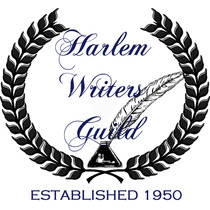Men and women like Professor Alain Locke of Howard University’s Philosophy department, Madame C. J. Walker’s daughter A’Lelia, the grand dame of Harlem society, and Regina Andrews a librarian at the 135th Street library (soon to be renamed the Schomburg Center for Research in Black Culture) were not only visionaries, but also brave soldiers like the Harlem Hell Fighters, demanding they be allowed to take the field, be allowed to show the world their talent, their mettle. They are the ancestors of Morrison, Walker, Baldwin, and Wright.
If Eubie Blake and Noble Sissle hadn’t dared to change the shape and tenor of the Great White Way with their groundbreaking 1924 all Negro musical Shuffle Along (which is being revived and brought to the stage in 2016 by none other than Audra McDonald and George C. Wolfe) there would be no August Wilson. Without men like the musical innovator and businessman James Reese Europe, sadly killed before his time, and Paul Robeson, with his reinterpretation of the Negro spiritual, which helped the form crossover to the mainstream, there would be no Thelonious Monk, no Miles Davis, no Guru, no Janelle Monae, or Sharon Jones. And of course without Nella Larsen, Jessie Fauset, and WEB DuBois there would be no Melissa Harris Perry, Michael Eric Dyson, Ta-Nehisi Coates, and no Harlem Writers Guild.
The Guild, born as an outlet for African-American writers to hone their craft, evolved from the Committee for the Negro in the Arts. The Committee, founded in the 1940s, harassed and blacklisted, finally disbanded when their WPA funding dried up. Remnants of the Committee, excluded from the mainstream literary scene, created their own workshop to develop and assist in the publication of writers of the African diaspora, such as Douglas Turner Ward, Ossie Davis, Paule Marshall, Audre Lorde, and Sarah E. Wright. So, no Renaissance no Committee. No Committee no Guild. Get it?
We think we know the Harlem Renaissance and all that it means and what it did for not only African American culture but the world, but like other moments in history from the World War One to the Civil Rights Movement, we are usually fed the highlights and big names. We know that the Harlem Renaissance put black writers, artists, and thinkers on the map, gave them a modicum of power and prestige never before felt by the community, but what we sometimes fail to note, to appreciate is that just as Harlem is not just a handful of blocks and avenues but a state of mind, it is also, dare I say, a kind of social contract placed in the hands of every writer, artist, and thinker white or black. We are obligated to create and evolve. Eubie, Josephine Baker, Wallace Thurman labored under unforgiving and uncertain conditions. They broke unforgiving and uncertain ground. They went to the mountain top and planted their flags. The life of those who will not keep to their place can be rocky, and we are still stumbling on the rubble left behind, but our path is still so much smoother than theirs. If we are truly to call ourselves artists, and in the case of the Guild, writers, we have to continue to push the boulders in our path out of the way and strive forward on the shoulders of giants.
Be sure to check back next month to find out what the HWG is thankful for!
K.C. Washington
Write to delight!

